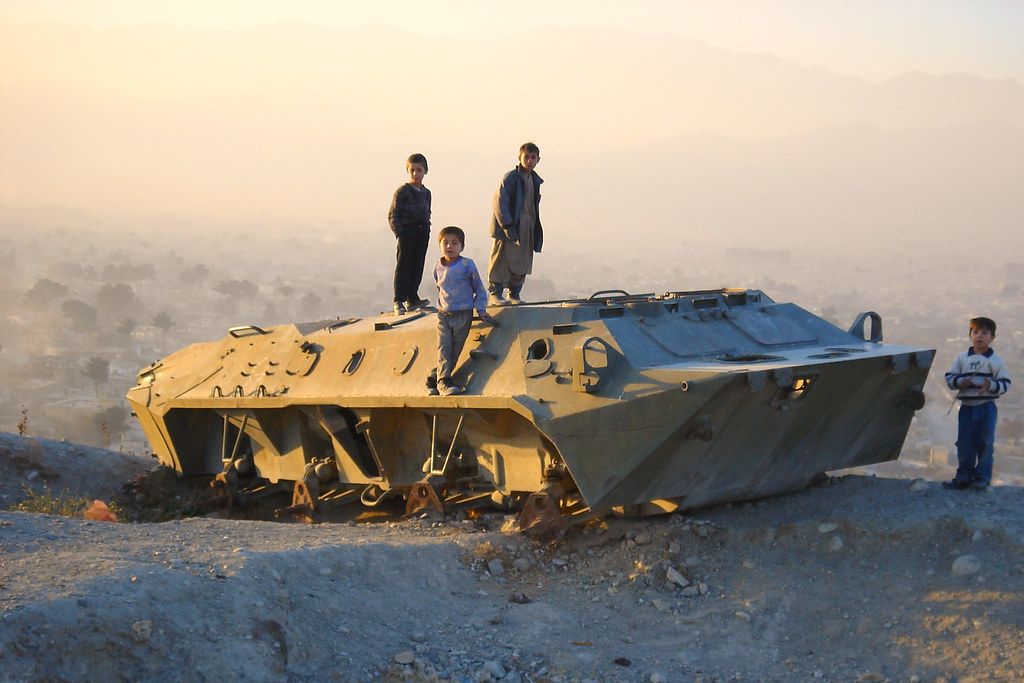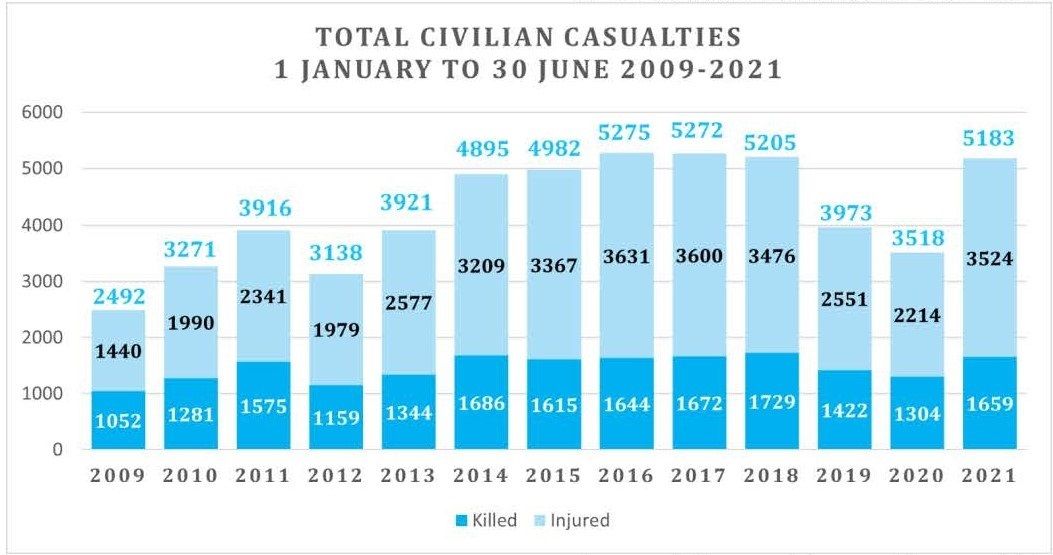
As the curtain falls on the tragic comedy of errors that has been the US involvement in Afghanistan, I see some common threads in much of the discourse.
But I see a lot missing, too.
First, there’s a lot of frustration that Afghans wouldn’t fight... in fact, Afghans showed they were very capable of fighting and willing to do so – just not the side we wanted to win.
The surrender by military and political leaders at all levels was a practical decision to prevent further bloodshed; while many in the US and NATO are talking about how few deaths their “placeholder” forces sustained, they are ignoring the fact that thousands of Afghans have been dying every year - security forces, civilians, and opposition fighters.

Also, the fact that an 85,000-strong force have been able to subdue a country of 38 million indicates that comparatively few people were interested in fighting - which is perhaps not strange, considering that the country has known relatively little peace since the 1970s. Pax Talibana may be preferable for many to a continued occupation or civil war.
Also seeing a lot about several human rights issues; so let’s talk about them here. The fate of women in society, for starters. Yes, it’s probably going to take a big step back, which is sad and unfortunate - but I’ve been on Twitter since 2012 and haven’t seen a lot about the plight of women in other Islamic theocracies, such as Saudi Arabia – perhaps because they’re our “ally.”
Next is the perceived “brutality” of the Taliban, and yes, the application of sharia law in its most violent form – executions by beheading, the amputation of hands and other forms of torture for crimes of theft is horrific – but again, little is heard when the Saudis carry out similar punishments on a mass scale.
Why do I note these things? First, it’s to suggest that maybe we should try harder to raise the bar for the treatment of women and for judicial rule of law throughout the world, not just in Afghanistan.
Can we force Saudi Arabia to change its society? No, but we can incentivize them by withholding the billions of military aid that we provide them every year. It is hypocrisy of the worst order to publicly decry the actions of the Taliban while simultaneously rewarding states who carry out the same human rights violations with the military weapons and advisors that they use to prop up their own monarchies and wage war on their neighbors.
Finally, there’s a lot of talk about how those Afghans who collaborated with the Coalition in its years of occupation will be treated – again, there’s a lot of reason to be worried, especially if we look at how collaborators in both Europe and the USSR were treated at the end of WWII. Unconditional surrenders rarely end well for those who supported the losing side.
Now, let’s talk about the failings of the US intelligence community, the US military, & the US government. That intelligence community, including the CIA which has been carrying out its own private wars-within-wars for decades in Afghanistan, has failed.
Rather than telling the US (and through the media, the world) that there'd be 90 days for moderates to leave Kabul, they should have been warning since the Doha Accords were first signed that all moderates & foreigners should expect a full return to theocratic rule by 9/11/21.
Had they done so, many lives might have been saved – but this begs the question – what country in the world would let Afghans seek asylum? America itself is infamous for turning away asylum seekers at their Southern border – how much harder would it be for the average Afghan to gain entry?
Likewise, the US military, especially its general officers have failed, by steadily plying, through both Republican and Democratic administrations, a company line that “we are making progress.” Where will the accountability be for these officers? Nowhere. Many are comfortably retired, chairing boards of the military-industrial companies that profit off these long wars.
And speaking of profits, who funded and armed the Taliban? They have no weapons factories of their own, no profitable start-ups. Trace the guns & money? Much of the money will be found to come from America's own "allies" - most of the weapons from one of the 5 permanent members of the UNSC, which are also the world’s largest arms exporters.
This war has made a lot of people rich - but we're not supposed to think about it.
Last, but not least, I’m seeing a lot of hot takes from elected officials – the same ones who sit in the Intelligence Committees, who have long had a chance to get Top Secret insight and make US policy accordingly. For them to be clutching pearls at this point is not only egregious, it begs the question – what did you know, when, and what did you do with the information?
Very much hoping that we will see a formal investigation of all these aspects of the failure of American foreign policy in Afghanistan – a policy that relied too heavily on airstrikes, night-raids, the backing of corrupt former warlords, and a profit motive for big business.
But I'm not that optimistic. Instead, I think what we'll get is a week's respite before the hawks start squawking again, trying to drum up support for a bigger military budget to fight a peer competitor, a fight they'll promise we can win, if only more money is spent.
Author's Note: This essay is based on the Twitter thread that I wrote on 15 August 2021 as I watched the fall of Ashraf Ghani's government and the withdrawal of foreign diplomats and military forces; and as I watched the discourse on those events spin up on all forms of media after years of public disinterest.






